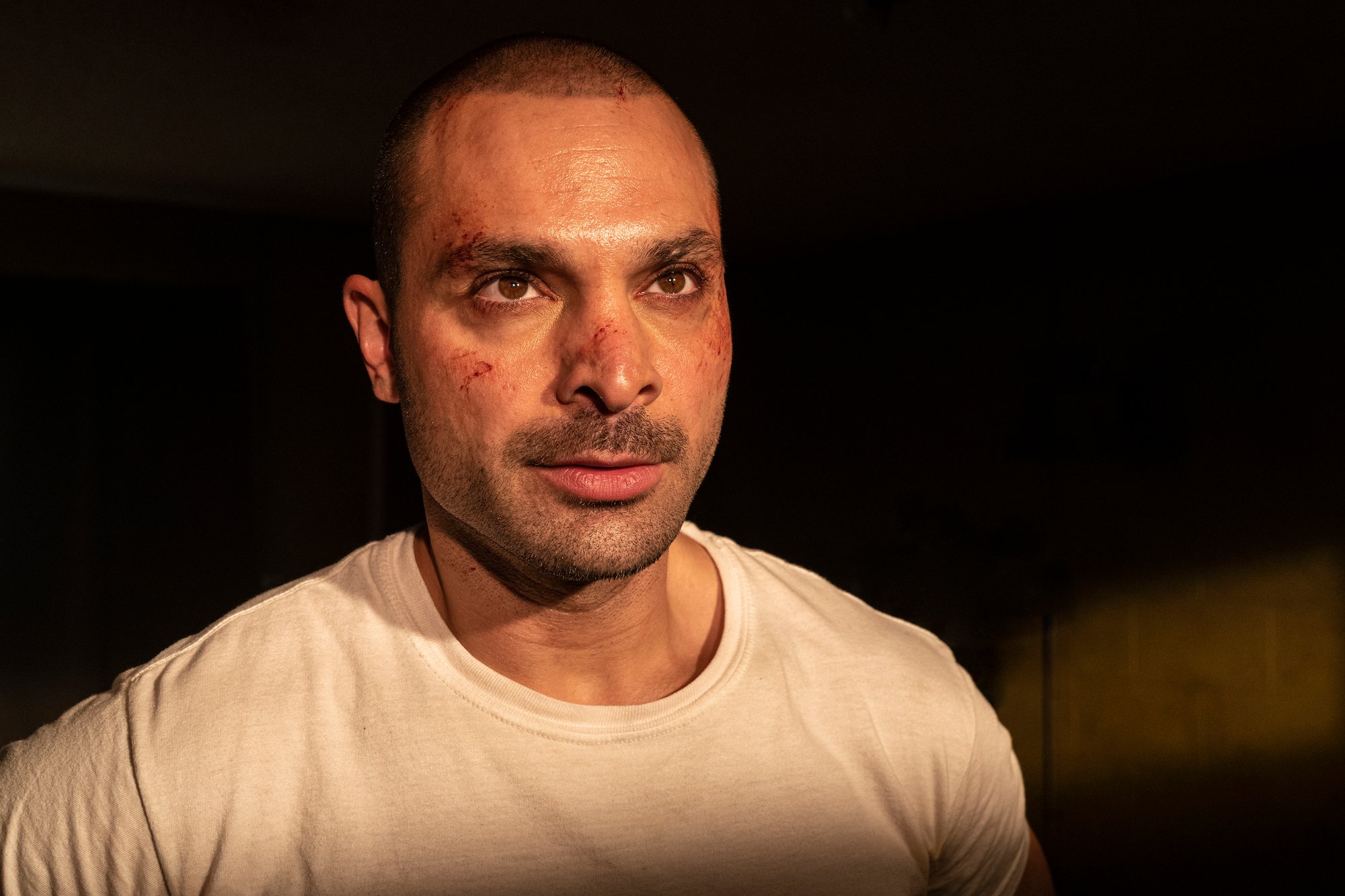‘Better Call Saul’: Michael Mando Reacts to That Shocking Nacho Moment
[Warning: This article contains spoilers for Better Call Saul Season 6 Episode 3.]
One of Better Call Saul‘s biggest questions has been about what happens to Nacho Varga. Many feared he would die after his actions in the last season of the TV show, but no one knew how.
They finally found out in the third episode of Better Call Saul Season 6, when Nacho was turned over to the Salamanca cartel after the assassination attempt on Lalo Salamanca. He was about to be killed by Juan Bolsa when Nacho got control of a gun and turned it on himself.
Now, Michael Mando is opening up about his character’s emotional send-off and the experience of shooting that scene.

Michael Mando on how he learned about Nacho’s death in ‘Better Call Saul’
Mando first learned about Nacho’s death sometime between late 2020 and early 2021.
“I was in Montreal. I think it was around the end of 2020, beginning of 2021,” he told Entertainment Weekly. “[Executive producer] Melissa Bernstein called and said, ‘Peter and Vince [Gould and Gilligan, the show’s creators] would like to talk to you.’ And it was just a really beautiful conversation.”
“A lot of beautiful words were exchanged and there was just a sense of family and gratitude, and they had promised me that it was going to be epic and heroic and tragic at the same time,” he continued. “And that I would be very happy. And they were right.”
In Better Call Saul Season 6 Episode 3, Nacho was down on his knees with his hands tied behind his back, waiting to be executed. As he was being questioned, he decided to come clean and gave a brutal monologue confessing to putting Hector Salamanca in a wheelchair. In one quick motion, he cut his restraints with a glass shard hidden in his hands, pulled out Bolsa’s gun, and held him at gunpoint. But instead of trying to shoot or talk his way out, Nacho shot himself.
‘It was a really fantastical moment’ for him
Mando told EW that it was “a really fantastical moment” and an “incredible episode to shoot.”
“[Off the set], I had cut my finger really deep and lost sensation in all of my left hand and had to be rushed to the hospital, because I couldn’t tell if I was having a heart attack or if I couldn’t feel the nerve in my hand, because all I kept feeling was tingling in my shoulder. So it was just a magical moment, you know?” he shared.
Elaborating, he said:
“The ancient Egyptians used to weigh the heart of the dead man against the weight of a feather. And if his heart was lighter than a feather, then he would go to heaven. I feel Nacho’s heart was being weighed — not only to all these future dead men in the scene, because everybody else dies. But also to the world.”
“He had the skyline in front of him and he was sort of speaking his piece to the gods as well,” Mando added. “To me, he was doubling down on his love for his father…. This is the speech that doubles down what I feel in regards to killing innocent lives. He hates this idea that tough guys need to kill for fun or pleasure. He dislikes the idea of greed and corruption and he wants nothing to do with it. And it’s his chance of standing up for what he believes is right.”
What does that mean for Saul Goodman’s line about Nacho after ‘Better Call Saul’?
After Nacho’s death, viewers were left wondering whether Saul will find out about what happened to him. In Breaking Bad, when Walter White and Jesse Pinkman capture him, he famously tells them, “It wasn’t me, it was Ignacio.” This seems to suggest he thinks Nacho is still alive. But is that the case?
When asked, Mando directed the question to the show’s creators. “That’s a Vince and Peter question,” he said, laughing. “We’ve sworn an allegiance to keep our lips sealed.”
Until then, Mando is looking forward to the future. “I’m very interested in developing with producers and co-creating,” he said when asked about what’s next after Better Call Saul. “I’m interested in a lot of great up-and-coming directors who have cool ideas. I like genre films …Westerns, sci-fis, psychological thrillers. I like action films with a very solid, dramatic core to them. So I’m very excited for the future and very grateful for the past.”
Watch Better Call Saul on AMC on Mondays at 9 p.m. ET.


